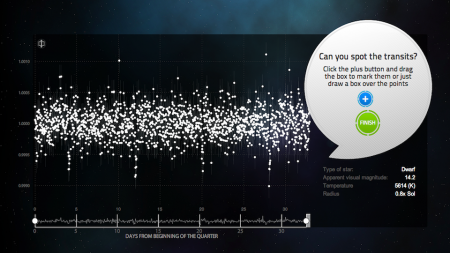Gamers Discover Two New Planets Using Browser Game. Cyeah!
Gamers are fucking holding it down. When we’re not cracking crazy ass protein thingies that I don’t really understand using Foldit, apparently we’re finding planets. Earth-like ones.
io9:
Citizen Science made an amazing leap this week. Citizen scientists, using the data supplied by the Kepler public archives, helped to identify two possible planets outside of our solar system, thanks to the browser game Planet Hunters.
The 10 best candidates as sifted through by citizen scientists during the first month afterPlanet Hunters went live were passed onto the Kepler team, a group of scientists all over the world looking to find extra-solar planets, for further inquiry. The results were published in the article Planet Hunters: The First Two Planet Candidates Identified by the Public using the Kepler Public Archive Data, published in the journal Monthly Notices of the Royal Astronomical Society this week.
[cont]
Planet Hunters works by using an indirect approach to finding planets, making use of the Transit Method and the Kepler Public Data archive. By observing the light emitted by stars over a 30+ day period, users are asked to look for times when the light curve “dips” in signal. This dip in signal, called a transit feature, suggests that a possible planet in orbit around the star is moving across the path of the star at the time. It takes about three hours for a planet to move across the face of the star during its orbit, long enough for hundreds of light measurements to be made, resulting in dips called transits. Your challenge, as a player, is to identify these dips in light intensity over a course of time for a given star. Also, the size of the planet plays a role, so if a planet is very large, the depth of the transit will be larger than that of a smaller planet, as the larger planet would block more light.
Fantastic.




